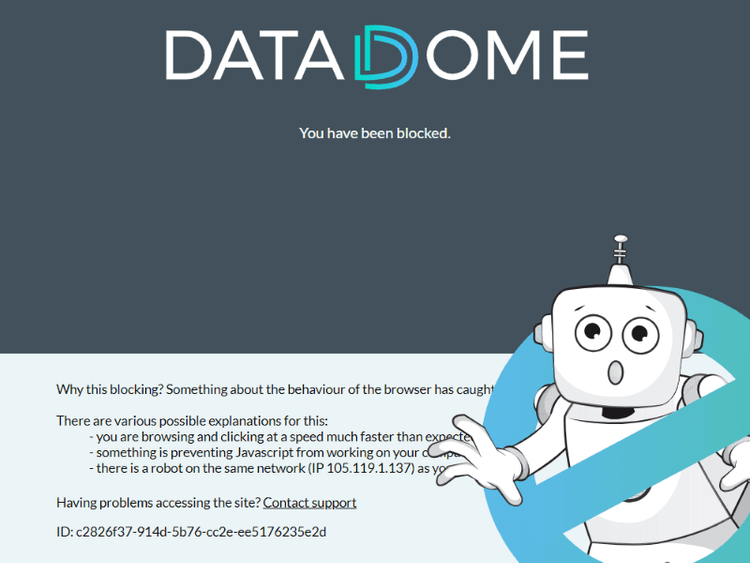

They’ll just roll back the blockchain. Ethereum is a centrally controlled cryptocurrency, though its fans claim otherwise. It’s been rolled back before.


They’ll just roll back the blockchain. Ethereum is a centrally controlled cryptocurrency, though its fans claim otherwise. It’s been rolled back before.


No. Check my previous comment – this is about hosting on your home ISP, and turning that on or off directly affected the blocking. There is no way to host a webserver through any commercial VPN service.


It seems crazy to me too, but I tested it numerous times. Closing port 80 and 443 stopped the blocks, and re-opening them started the blocks again.


From several years of experiencing it in person. Datadome was the worst and most consistent. It stopped the moment I switched my webserver onto an exotic port number (above 10,000).
Datadome sent me captchas at every domain they firewalled. After correctly solving, I would always be completely blocked:

(not my screenshot)


Here is a page listing some system requirements for Peertube. It says 4 cores and 4GB RAM for 1000 viewers, which some Raspberry Pi systems have.


Yes. However, hosting things from your home connection will make it difficult for you to visit many websites. Blocklists such as Datadome, Cloudflare, and F5 will give you endless captchas if they detect port 80 or port 443 open.
The article is from December, so the interviewer couldn’t have asked about their CEO’s recent betrayal: https://insights.priva.cat/p/does-proton-still-stand-for-anything
This article seems like a lot of FUD written from an anti-FOSS perspective. In their second point, they say that F-droid’s inclusion policy is “ridiculous” for requiring programs exclude proprietary software. I think the author is ridiculous for asking for this. This is what F-droid is for. I don’t want any proprietary apps or libraries on my phone. If developers only want to work on their proprietary software, they don’t get into F-droid. If they make a modified FOSS version and put it in F-droid, and let it bitrot and go unpatched when vulnerabilities are discovered, and F-droid issues a security advisory for that program, that’s not F-droid’s fault.